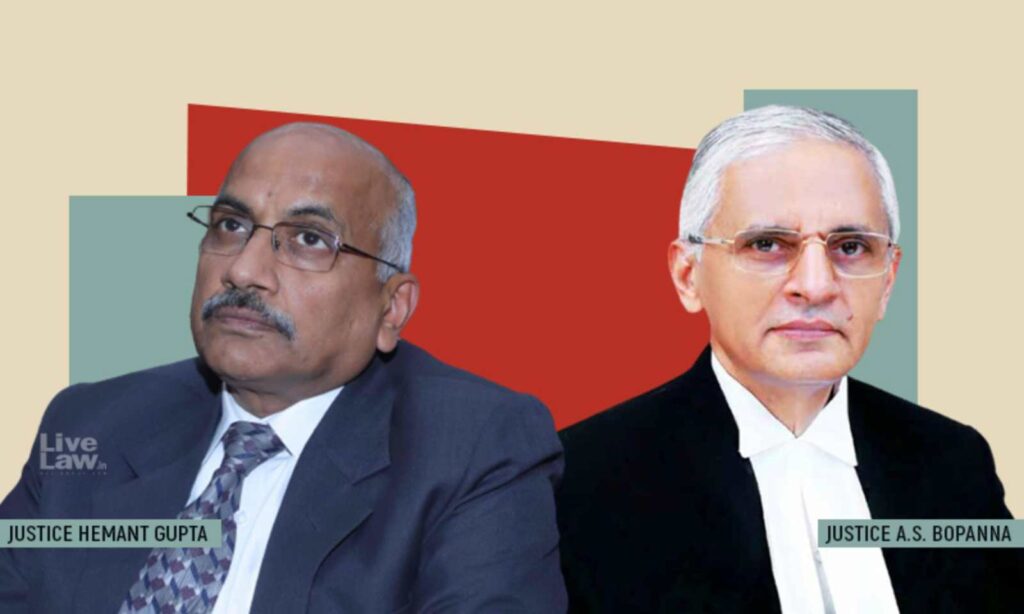![]()
The Supreme Court has observed that 2010 amendment of Payment of Gratuity Act 1972 is not retrospective.
As per the 2010 amendment, the upper-limit of amount of gratuity payable as per Section 4 of the Payment of Gratuity Act 1972 was increased as Rupees 10 lakhs from Rupees 3.5 lakhs.
The appellants before the Supreme Court were former employees of Coal India Limited, who were paid gratuity amount of Rs 10 lakhs in January 2007 in terms of an Office Memorandum of the Union Government. At that point of time, i.e in 2007, the statutory upper limit of gratuity was Rs 3.5 lakhs. According to the Income Tax Act, the amount of gratuity received by an employee to the extent it does not exceed the upper limit under the Payment of Gratuity Act is exempt from tax liability. Since the upper limit for gratuity in 2007 was Rs 3.5 lakhs, the appellants had to incur TDS liability for the remaining amount.
Since the upper limit of gratuity was amended as Rs 10 lakhs in 2010, the appellants sought for a retrospective effect to it from 01.01.2007, so that they can claim complete tax exemption for the gratuity received.
Thus they challenged the date of commencement as 24.5.2010(the date when the amendment act received the assent of the President) and asserted that it should be made effective from 1.1.2007. According to them, since the amendment of the Gratuity Act is to grant liberalized benefits, it would be retrospective. Yet another contention was that the cut-off date created two categories of employees, first who have attained the age of superannuation before the said date and second who have superannuated on or after 24.5.2010.
The bench comprising Justices Hemant Gupta and AS Bopanna observed that the benefit of higher gratuity is one-time available to the employees only after the commencement of the Amending Act.
Referring to the decision in State Government Pensioners’ Association & Ors. v. State of Andhra Pradesh, the court noted that the payment of gratuity from a specified date of retirement was held to be not unconstitutional.
“The Gratuity Act contemplated rupees ten lakhs as the amount of gratuity only from 24.5.2010. Such gratuity is the amount payable only once. Thus, the cut-off date cannot be said to be illegal, it being one-time payment. Therefore, such amendment in the Gratuity Act cannot be treated to be retrospective. Therefore, the provisions of the statute cannot be said to be retrospective.”, it said.
The court has also referred to judgments in Vijayalakshmi Rice Mills, New Contractors Co. & Ors. v. State of Andhra Pradesh, Orient Paper and Industries Ltd. & Anr. v. State of Orissa and Himachal Road Transport Corporation & Anr. v. Himachal Road Transport Corporation Retired Employees Union.
“In view of the above, we find that the date of commencement fixed by the Executive in exercise of power delegated by the Amending Act cannot be treated to be retrospective as the benefit of higher gratuity is one-time available to the employees only after the commencement of the Amending Act. The benefit paid to the appellants under the office memorandum is not entitled to exemption in view of specific language of Section 10(10)(ii) of the Income Tax Act.”, it said while dismissing appeals.
Case: Krishna Gopal Tiwary vs Union of India ; CA 4744 OF 2021
Citation: LL 2021 SC 378
Coram: Justices Hemant Gupta and AS Bopanna
How useful was this post?
- Share review with rating here: Google Review
We are providing practical training (Labor Laws, Payroll, Salary Structure, PF-ESI Challan) and Labor Codes, Payroll Consultant Service & more:
- HR Generalist Practical Training: https://oneclik.in/hr-generalist-practical-training/
- Labor Law + Payroll-Practical-Training: https://oneclik.in/labor-law-payroll-practical-training-certificate/ (PF, ESI, Bonus, Payroll & more)
- Labor Code, 2020 (Crash Course): https://oneclik.in/labor-code2020-rules-practical-training-certificate-crash-course/
- Labour Code | Labour Bill (Labour-Law-Practical-Training): https://oneclik.in/labour-law-practical-training/ (Factory, Contact Labor, Maternity Act & more)
- PF – ESI Consultant Service: https://oneclik.in/pf-esi-consultant-service/
- Labor Law, Compliance & HR – Payroll Management
- Advance Excel Practical Training: https://oneclik.in/advanced-excel-practical-training-certificate/
Get Latest HR, IR, Labor Law Updates, Case Studies & Regular Updates: (Join us on Social Media)
- Telegram Channel: “One Clik”
- Whatsapp Group: https://wa.me/919033016939
- Facebook: One Clik
- Linkedin: One Clik
- Instagram: oneclik_hr_management
- YouTube: One Clik

